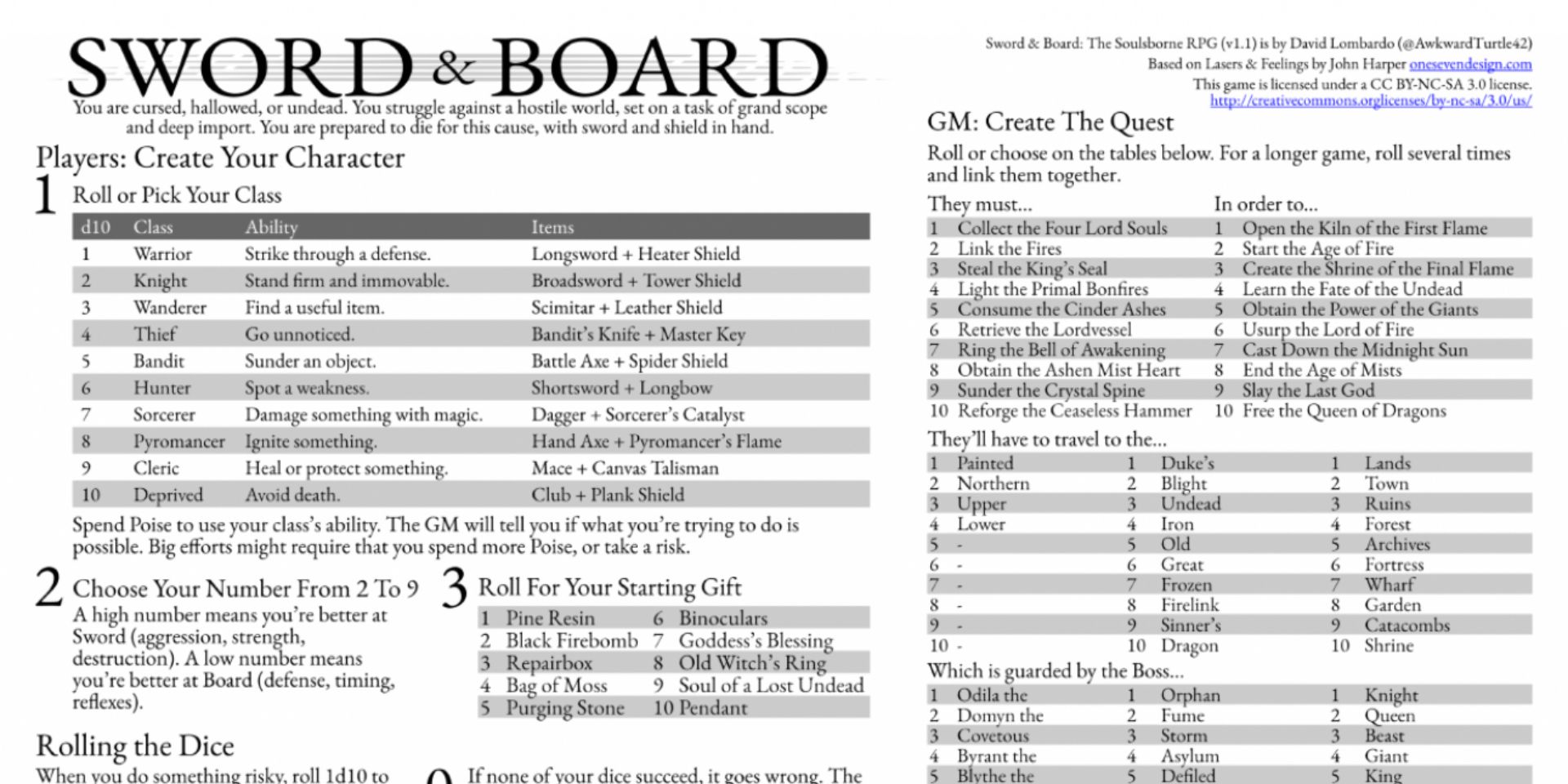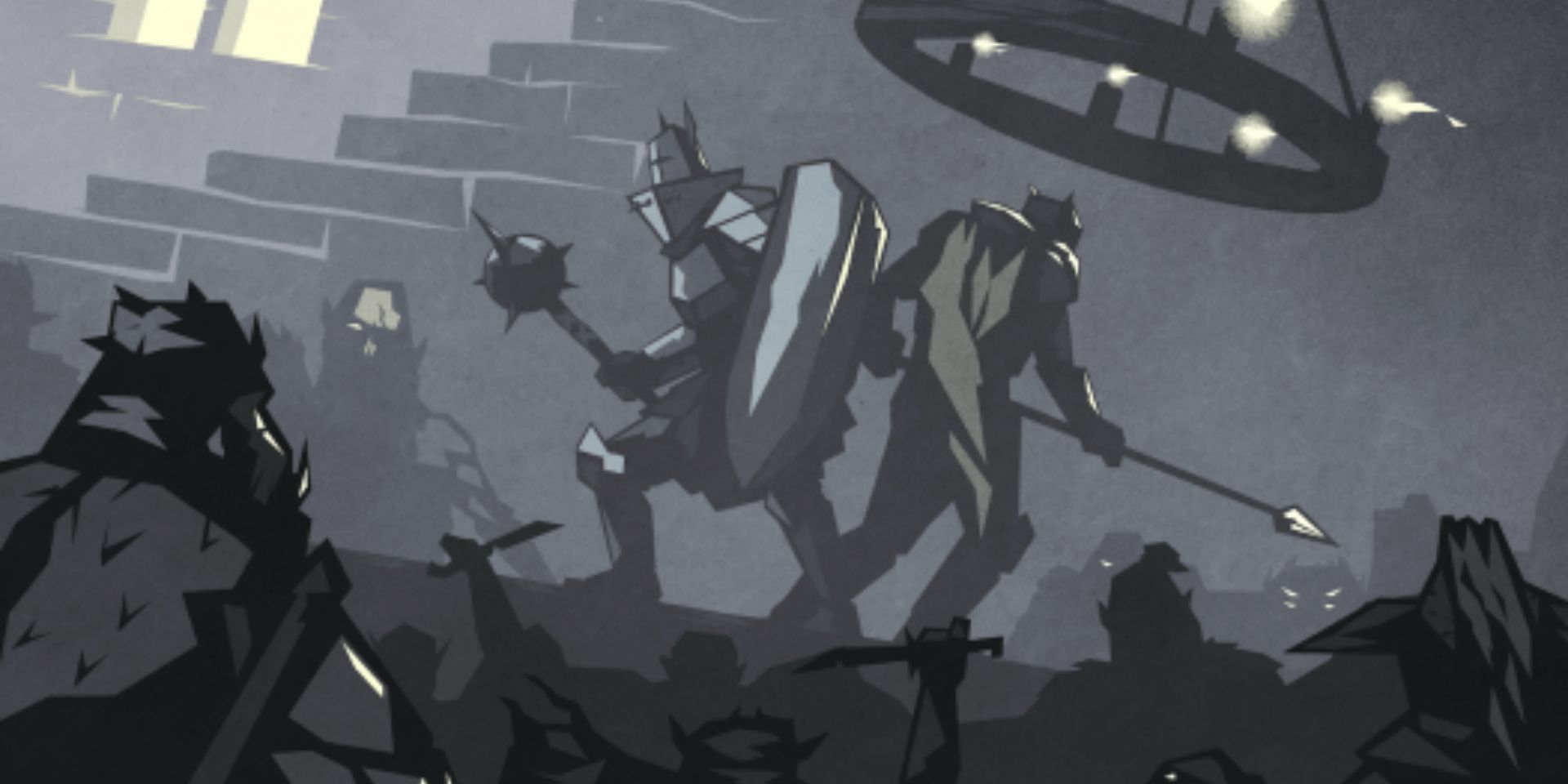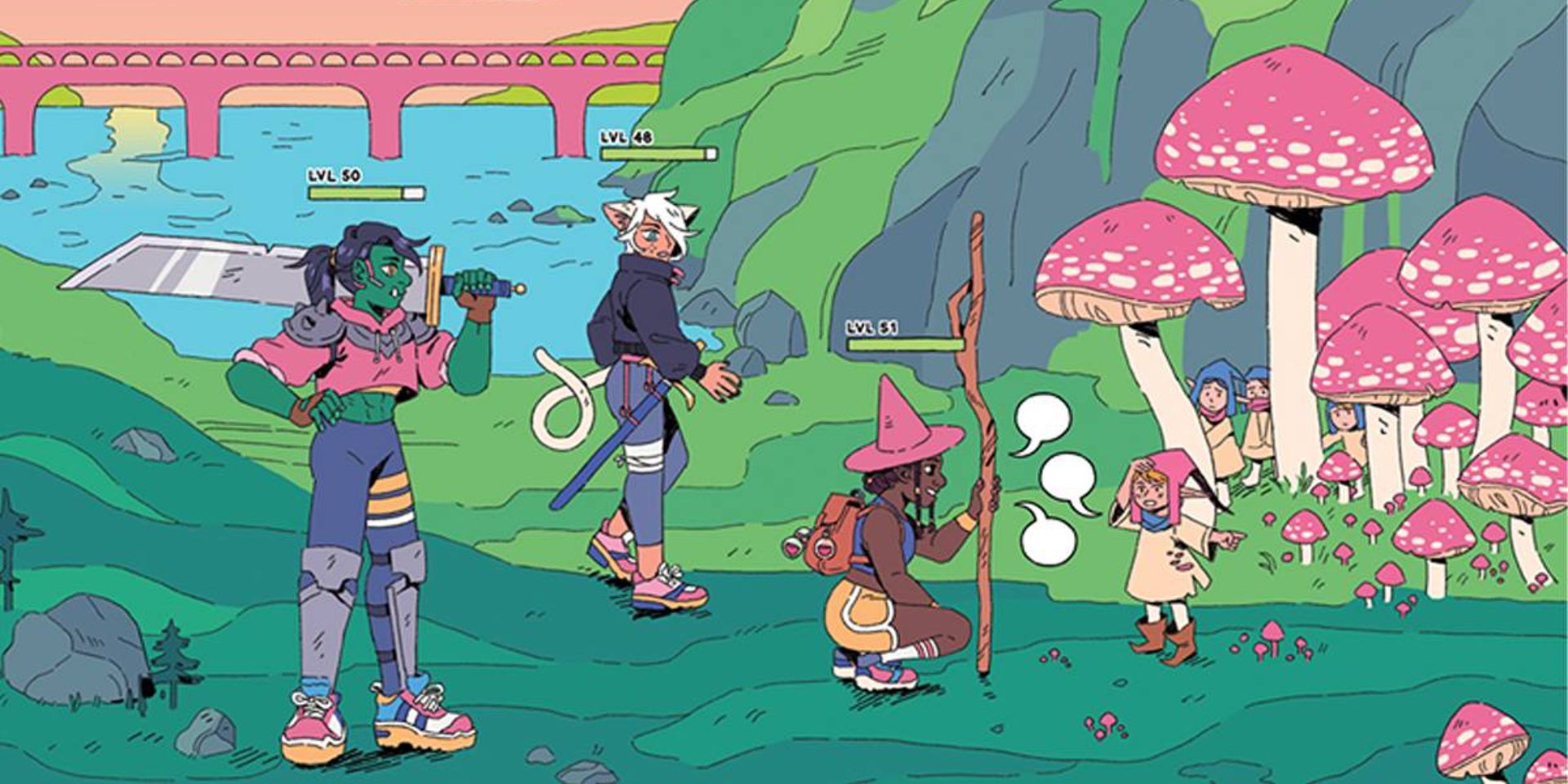So many modern-day video games owe their existence to Dungeons & Dragons, a tabletop RPG that introduced the idea of exploration, character classes, experience points, and leveling up to the lexicon of video games. In a strange form of reciprocity, a not-insignificant numbers of recent indie tabletop RPGs now owe their existence to video games, taking gameplay mechanics, themes, and aesthetics from franchises like Dark Souls and Destiny and recreating them in a pen-and-paper format.
Many of the pioneers of the PC gaming industry – the creators of text adventures like Zork, roguelikes such as NetHack, and tactical RPGs like Wasteland – were also fans of tabletop gaming, taking the simulation-focused rules of RPGs like D&D or RuneQuest and trying to adapt them to a digital medium. Computer RPG adaptations like Baldur’s Gate or Shadowrun Returns actually directly ported tabletop rules into their digital gameplay, while original RPGs like The Elder Scrolls used unique computer programming to simulate combat, stealth, and magic with new levels of complexity.
Nowadays, many people are introduced to tabletop roleplaying games after starting out with video games, rather than the other way around. A few aspiring game designers have even created tabletop RPGs inspired by the settings, characters, and gameplay of their favorite computer RPGs, strategy games, and first-person shooters. Many of these “homage” RPGs focus on narrative over simulation, sacrificing intricate rules in favor of creating character interactions and plot twists even the most cutting-edge video games can’t yet match.
Sword & Board – A Tabletop RPG Inspired By Dark Souls

Sword & Board, as reported by Dicebreaker, is a hack of a small, freeform, Star Trek-inspired RPG called Lasers & Feelings, in which the two primary character attributes are “Lasers” and “Feelings.” As a dark fantasy RPG explicitly modeled on FromSoftware’s Dark Souls trilogy, the two main attributes of Sword & Board characters are “Sword,” the ability to inflict destruction and violence, and “Board,” the ability to shield oneself and avoid harm. One unique touch of Sword & Board is the randomized dice tables in its ruleset, which allow players to randomly generate narrative goals, discover loot for their PCs, and create Boss enemies with the overly dramatic titles Dark Souls bosses are famed for.
Rhapsody Of Blood – A Tabletop RPG Inspired By Castlevania

Rhapsody of Blood is an RPG built using the rules for UFO Press’ post-apocalyptic Legacy: Life Among The Ruins, which is itself a hack of the Powered By The Apocalypse rules used for the groundbreaking Apocalypse World RPG. Instead of focusing on a close-knit clan trying to survive the collapse of society, Rhapsody of Blood is a game about a bloodline of heroes fighting against the evil of a gothic, supernatural castle that appears once a generation to plague their land. Over the course of a campaign of Rhapsody of Blood, each player controls multiple PCs from the same heroic bloodline, with veteran vanquishers of the castle handing down relics, techniques, and secrets to their descendants so they may continue to fight the good fight in generations to come.
The spooky castle, families of monster-hunting heroes, and gothic supervillains of Rhapsody of Blood are modeled after the gothic haunts, vampire-hunting Belmont Clan, and incarnations of Dracula seen in the Castlevania video games, with a dash of the boss fights of FromSoftware’s Bloodborne. A sequel, Voidheart Symphony, updates the setting of Rhapsody of Blood to a modern-day, urban fantasy world, with an anti-authoritarian rebellion and mental world battles straight out of the Persona JRPG series.
The Brightest Things We Know – A Tabletop RPG Inspired By Destiny

The Brightest Things We Know is a Forged In The Dark RPG made by Briar Sovereign, the creator behind fantasy mecha RPG Armor Astir: Advent. Currently available for playtesting on itch.io, The Brightest Things We Know takes place in the distant future, where the scattered, besieged colonies of humanity – remnants from a long-lost golden age – are protected by “Stars,” immortal champions gifted strange powers by an enigmatic artifact called “The Visitor.”
The factions, enemies, and themes of The Brightest Things We Know are clear, loving homages to the Bungie’s science-fantasy FPS Destiny franchise, particularly with its emphasis on immortal champions, technology indistinguishable from magic, and alien species with strange cultures and ethics. Novel additions to the Forged In The Dark rules for The Brightest Things We Know include clever mechanics for “respawning” after death, character classes themed around constellations, and a gameplay cycle that alternates between dangerous combat missions called “Strikes” and scenes of recuperation and socialization aboard the foundry-ships of humanity.
.Dungeon – A Tabletop RPG Inspired By MMO Games

Most of the games in this article are tabletop RPGs inspired by specific video game franchises. .Dungeon, in contrast, is a tabletop RPG about modern-day people playing an MMORPG in the style of classic World of Warcraft or Guild Wars. In .Dungeon, recently funded on Kickstarter, character creation involves designing a fictional MMO player, the look and abilities of their in-game avatar, and choosing character classes that reflect their preferred playstyle.
The fictional MMO of .Dungeon, a futuristic title called “Annwn,” is described as a self-evolving video game that can scan fantasy stories from books, dramas, and other forms of media, then convert them into virtual scenarios for players to explore. Mechanically, this justifies players taking campaign modules from Dungeons & Dragons and other RPGs and converting them into .Dungeon scenarios. Instead of losing health from setbacks, players lose a collective resource called Connection, which reflects how invested their party of PCs are in the MMO they’re playing. When their Connection reaches zero, the PCs, for various potential reasons, will disband their gaming group and move on to something else in their lives.




